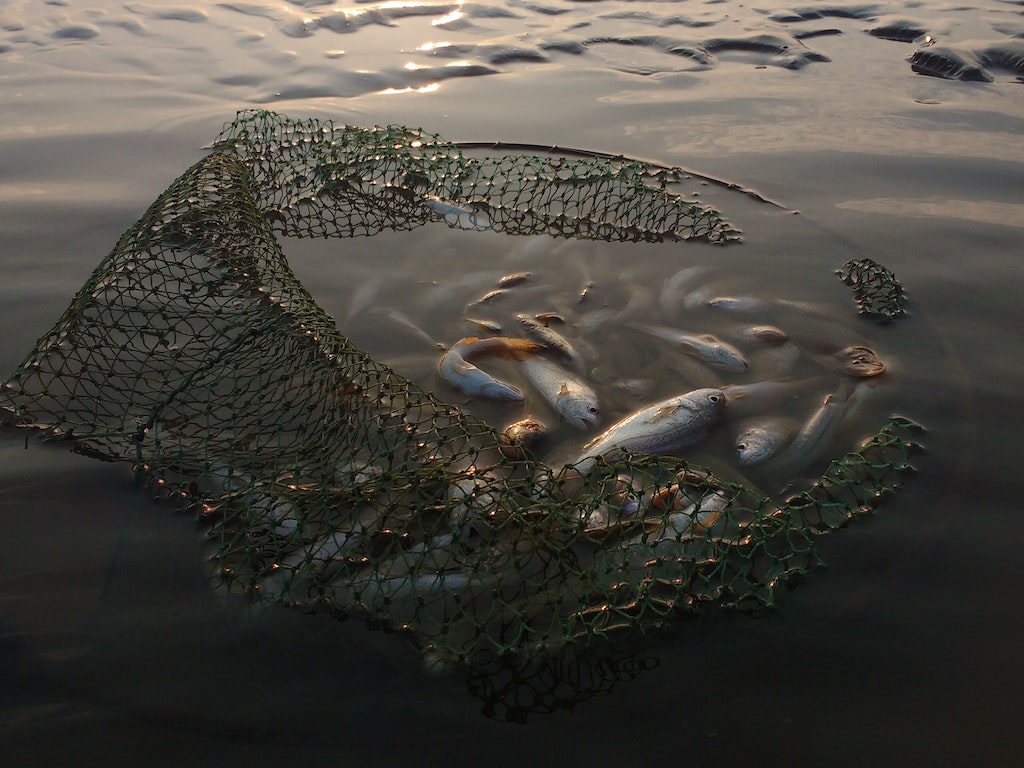3 Mins Read
As more people begin to lower their meat consumption, many are choosing to eat fish instead – a trend that will alarmingly speed up the rate at which our oceans will be completely depleted. Current projections say that the world’s stocks of fish will collapse by 2050, making food solutions such as alternative proteins even more vital to prevent a fisheries and environmental disaster. Rising demand for seafood will also exacerbate other damaging impacts of the fishing industry, from carbon emissions to plastic pollution.
Speaking at the Latin American Summit for Sustainable Fisheries and Aquaculture held on October 29, Arlin Wasserman, founder and managing director of food consultancy Changing Tastes predicts that seafood consumption in the U.S. is poised to undergo major growth as more people choose to lower their meat intake.
Over the past year, the country has imported over US$22 billion of fish and seafood products, making up an eighth of every single dollar purchase of seafood globally – representing a tripling in figures within a 25 year period. Set to “continue to grow even despite the Covid-19 pandemic,” Wasserman said the “forecast is that it will continue to do so steadily for many years to come.”
The major driver of the upward trend for seafood consumption is the move away from meat, according to Changing Tastes’ survey data. “Consumers in the U.S. want to eat far less beef by actively limiting the amount of meat eaten, a tendency that has been constant for more than two years,” Wasserman explained.
Statistics from their survey also found that around a fifth of all U.S. consumers who are looking to reduce their meat intake would prefer to consume fish instead, and would specifically like to consume more types of seafood too, including octopus and ahi tuna.
Consumers in the U.S. want to eat far less beef by actively limiting the amount of meat eaten, a tendency that has been constant for more than two years
Arlin Wasserman, Founder & Managing Director of Changing Tastes
Fish species are already under overwhelming pressure due to overfishing, with experts estimating that at the current rate without factoring in the additional push predicted by Wasserman, we could be looking at no fish left by as soon as 2050. That’s just three decades on from now.
On top of overfishing, many fish species are also under threat due to rising global temperatures as a result of climate change. Recent research has found if global heating continues unabated, up to 60% of fish species around the world will be unable to survive by 2100. Even if the world manages to limit temperature rise to the Paris Agreement goal of 1.5 °C, it would be too hot for 10% of fish species.
The rise in seafood consumption would further exacerbate a number of environmental crises too, with the industry’s fleets representing a major emissions polluter and ghost fishing nets carelessly discarded representing half of the world’s ocean plastic pollution.
Illegal gillnets that are widely used by fishing companies across the world have dealt a blow to snaring dolphins and other cetacean populations too, who have been caught in the bycatch, and current figures show at as much as 90% of the dolphin population in the Indian Ocean have already been wiped out by the fishing industry.
Amid these worrying trends, it has become increasingly crucial to develop more alternative food solutions, such as plant-based and cultivated seafood products, which will help the world meet its seafood and protein demands while significantly reducing the negative environmental consequences of traditional seafood production.
Lead image courtesy of Unsplash.




